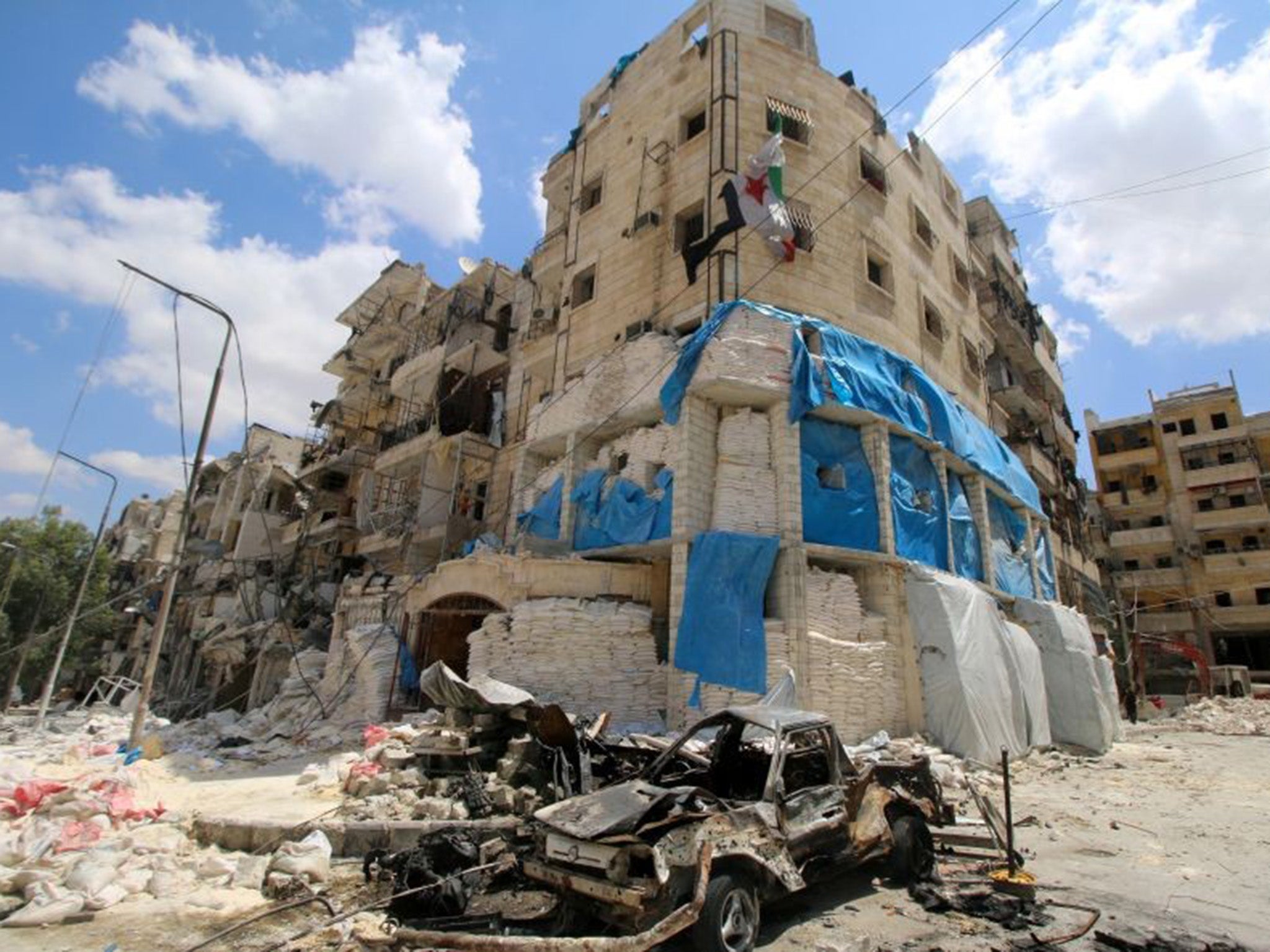Syria crisis: Aleppo rocked by further hospital attacks
Medecines Sans Frontieres says that seven of the facilities it runs in Syria have been bombed in the last three months

Your support helps us to tell the story
From reproductive rights to climate change to Big Tech, The Independent is on the ground when the story is developing. Whether it's investigating the financials of Elon Musk's pro-Trump PAC or producing our latest documentary, 'The A Word', which shines a light on the American women fighting for reproductive rights, we know how important it is to parse out the facts from the messaging.
At such a critical moment in US history, we need reporters on the ground. Your donation allows us to keep sending journalists to speak to both sides of the story.
The Independent is trusted by Americans across the entire political spectrum. And unlike many other quality news outlets, we choose not to lock Americans out of our reporting and analysis with paywalls. We believe quality journalism should be available to everyone, paid for by those who can afford it.
Your support makes all the difference.The airstrike on the al-Quds paediatric hospital in Aleppo has led to expressions of shock and anger in the West, but such attacks on medical facilities have become increasingly prevalent during Syria’s bloody civil war.
Al-Quds, the main place for paediatric referral in what is left of medical facilities in Aleppo, the country’s richest city before the conflict, was situated on the bottom floors of a five-storey building in Sukkari district. The doors and windows were covered by sandbags in an attempt to keep out bullets and shrapnel, but these provided no protection against air strikes. Twenty-four hours later a clinic in the Marja district of the city – this one providing treatment for chronic illnesses – was also bombed.
Medecines Sans Frontieres (MSF) which, along with the International Committee of the Red Cross (ICRC) had provided support for al-Quds reported that seven of the facilities it ran in Syria have been bombed in the last three months alone. Marianne Glasser, the head of the ICRC, pointed out after the al-Quds destruction that “this wasn’t the first time that lifesaving medical services have been hit”. She added: “We urge all parties: don’t attack hospitals.”
It seems unlikely the air strikes will stop and fear of them has driven many clinics to be physically dug-in underground, but that is not a guarantee of safety. The Baghdad Hospital in Hreitan received a direct hit on Christmas Day last year, killing a medical worker, Ali Hamedo, and injuring ten other members of staff and 20 patients.
“Not even underground is safe,” said a doctor at Hreitan. “We moved the hospital underground a year ago assuming it will be protected from the airstrikes. But the missiles penetrated through the levels. We had spent hundreds of thousands of dollars equipping the hospital, but now Hreitan has no more hospitals.”
The targeting of medical staff by the Assad regime is not new. In the Summer of 2012, while covering the battle for Aleppo, we needed to seek treatment for Bari, a friend and activist who had been shot in the leg on the frontline in Salheddine, We found a makeshift clinic in an abandoned set of offices: a constant stream of dead and injured were being brought in, the atmosphere was tense with incoming shells not far away.
The doctors had worked through the night and were exhausted. One of them, Dr Mahmoud Al-Shami, showed how they were improvising with very little equipment. Their main worry, however, was the dwindling supplies of medicine. Some of the medical staff were smuggling in drugs from across regime lines. It was a dangerous task, the bodies of three young doctors, tortured and burned, were found dumped on the road a few days after their arrest by the secret police. Three days later the clinic was stormed by the regime, the equipment was smashed, patients and two doctors were taken away – one of them was al-Shami. His body was found a month later.
Join our commenting forum
Join thought-provoking conversations, follow other Independent readers and see their replies
Comments